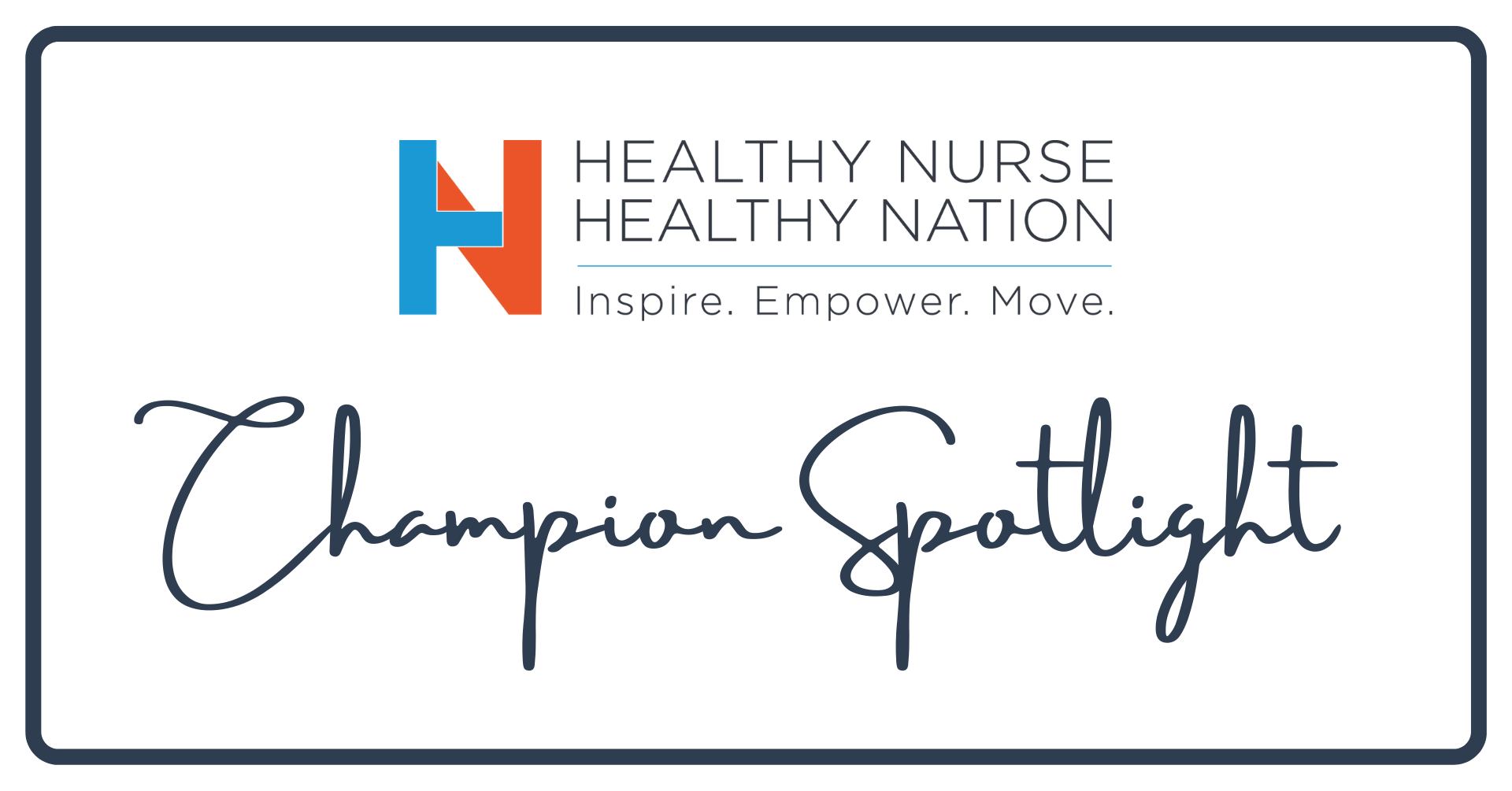ANA Healthy Nurse, Healthy Nation® Champion Spotlight Series: Georgia Indian Nurses Association
Published
Professional networking and wellness support for Indian nurses

Internationally educated nurses account for approximately 1 in 6 of the nurses in the United States. They help reduce the nursing shortage and contribute to the growing diversity in the healthcare workforce.
However, the transition to living and working in a foreign country can be challenging. Due to cultural norms and expectations, this is especially true for Indian nurses. India is the second highest source of immigrant registered nurses, after the Philippines.
“Indian nurses are always giving to others, as most nurses do, but they rarely think about taking care of themselves,” says #healthynurse Rajitha Bommakanti, BSN, RN, NBC-HWC, FCN, current chief advisor and past president of the Georgia Indian Nurses Association (GINA). “Their work and household responsibilities can be unmanageable and overwhelming. But traditional cultural norms may hinder Indian nurses from talking about their mental health or asking for help.”
GINA, a chapter of the National Association of Indian Nurses of America (NAINA), helps Indian nurses in the state of Georgia overcome challenges associated with transition. It also offers ongoing support, both professionally and personally, for Indian nurses.
Leadership Skills and Networking Opportunities for Indian Nurses
When she joined GINA 6 years ago, Rajitha found connection and networking opportunities she didn’t even realize she needed.
“As an Indian nurse educated in America, I was excited to meet people who understood both my passion for nursing and my culture,” says Rajitha, who was born in India, but raised and educated in the U.S. “Before joining GINA, I didn’t know a group like this existed,” Rajitha says. She believes finding those connections may be even more beneficial if you are new to the country.
A study in International Nursing Review reports that the burnout rate for internationally educated nurses can be high. This is especially true if they are:
- Younger
- Single
- Female
- Hold a higher educational degree
- Working as a staff nurse
- Not fluent in the local language.
- Estate planning
- Heart health
- Mental health and alcoholism
- Stroke awareness
“There are quite a few Indian nurses in leadership roles or interested in pursuing a leadership position,” Rajitha says. “GINA and NAINA offer a path to keep that number growing.”
Shining a Light on Mental Health and Wellness
In recent years, the governing board at GINA has recognized that supporting Indian nurses in their careers is not always enough. It’s also critical to focus on mental health and wellness — a subject that has traditionally been taboo in Indian culture.
“Growing up, it wasn’t typically acceptable in Indian culture to talk about your mental health with other people or admit that you were struggling,” Rajitha says. “Now in India, mental health is becoming part of the conversation. But most Indian nurses were not raised to ask for that kind of help.”
GINA makes it easier for Indian nurses to practice self-care by offering wellness education. They provide a safe and supportive space, providing webinars on wellness topics, such as:
- Burnout and stress, suggesting management techniques to address these issues early
- Diet and nutrition, to help nurses prepare easy and healthy meals
- Midlife changes, with information on what to expect and how to manage those changes
- Wellness tools, such as yoga, mindfulness, breath work, meditation, expressive writing, and gratitude
“We are helping Indian nurses learn how to manage their mental health and teaching them signs and symptoms to pay attention to,” Rajitha says. “Wellness is not just a luxury, it’s a necessity, especially when you’re caring for others.”
Access to a Nation of Indian Nurses
GINA is just 1 of 26 NAINA chapters nationwide. Each chapter hosts webinars offered on a virtual platform and available to members of any chapter.
Rajitha says joining GINA and being part of NAINA opens a whole new world for Indian nurses who might be struggling, lonely, or feeling stuck in their careers.
“As humans, it’s natural to seek out your own tribe and people,” Rajitha says. “We understand each other’s culture and background. That connection is invaluable.
What does your organization do to promote nurse well-being? Share with us in our discussion

Not a member of Healthy Nurse, Healthy Nation (HNHN) yet? Join today!
Sign up for our monthly challenges!
Blog Champion Spotlight
07/07/2025 7:35am CDT




Post a Comment or Question